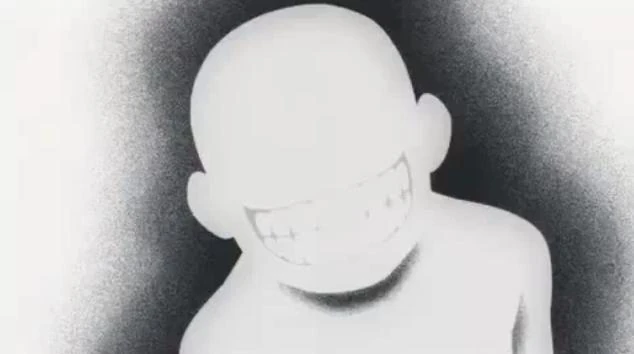It's probably inevitable that a story about alchemy with a happy ending must involve the renunciation of pride and ambition. Much like Frankenstein or Faust, alchemists dabble in forbidden knowledge and are punished for it. The big bad in this anime series wants to know all the secrets of the universe and live forever – usurp God's rightful place. God is having none of it however. The anime portrays him as a grinning white human outline, and he condemns the pretender to his throne to eternal despair. On the other hand, our hero Edward Elric renounces his genius for alchemy with the claim that self worth is not bought with knowledge but is conferred by one's peers – your family and friends. The grinning God is well pleased with this answer, and rewards Edward by returning his brother Alphonse from death.
This theological condemnation of human curiosity feels rather old-fashioned in the gnosticism-infused times we live in, where the Fall of Mankind is spun as a positive development à la His Dark Materials. Fullmetal Alchemist is a bit more Raiders of the Lost Arc – peering into the holy of holies will melt your face. It's also a bit weird that after apprehending the big truth that we are limited, foolish creatures who don't deserve enlightenment, Edward leaves his family and friends again at the end of the series chasing after more knowledge. The anime glamourises lone questing male heroes who must abandon their partners and children in the process of said quest... all while talking up how family is the preferred avenue of fulfilment.
But leaving these contradictions aside, the series is very good at exploring the consequences of ambition, both in the way it reduces people to a means to an end (philosopher stones are literally products of genocide), and also in the suffering left in its wake. The anime is set after the events of a brutal war against dark-skinned, red-eyed Ishvalans. In the original manga, this was a comment on the displaced Ainu of Japan. In Brotherhood it's easier to draw parallels with more recent conflict in the Middle East. What is interesting is that the purported 'good guys' have very clearly committed atrocities in the past. Likewise the most prominent Ishvalan character starts out as a terrorist, a religious zealot, and a murderer of innocents. Despite perpetrating unforgivable crimes, both he and his oppressors are given a shot at redemption, and an opportunity to reconstruct their war-ravaged societies.
This doveish theme is undercut slightly by the very prominent fascistic iconography employed by the series. The country is ruled by a Fuhrer, the setting is an alternate version of early 20th century central Europe where democracy is crumbling, and service to your commanding officer is presented in glowing terms. Roy Mustang, who emerges as the new Fuhrer at the end of the show, has as his guiding philosophy the paternalistic notion that if he looks after his subordinates, and they look after their subordinates, well-being will filter down to the country at large. Of course setting an example is important, but the checks and balances of a functioning republic only get a cursory mention, and I know which I'd rather rely on.
In any case, Brotherhood is not immune to the trope of government conspiracies, corruption and factional infighting frequently found in depictions of politics in Japanese media. Edward Elric's impetuous irreverence is the only protest levelled at the inevitability of these shenanigans, and it's an impotent one. The wheels of the machine keep turning, and resignation (like that of Edward's father) appears to be the only mature response.
It's very watchable, of course. Game of Thrones fans have no right to sneer at it (or to ever talk about fan service). Fullmetal Alchemist: Brotherhood is often more harrowing, but also infinitely funnier than George R.R. Martin's grim fantasy. Also, at 64 half-hour episodes, is more digestible and compressed than Game of Thrones. I was particularly impressed with the very tight plotting of the initial episodes, where a great deal of information is crammed in. The series slows down and stretches out as it goes on, to the point where the climactic final day goes on for something like 10 episodes. But the action never slows down, and my interest never faltered. It's an accomplished performance throughout, and well worth your time.


